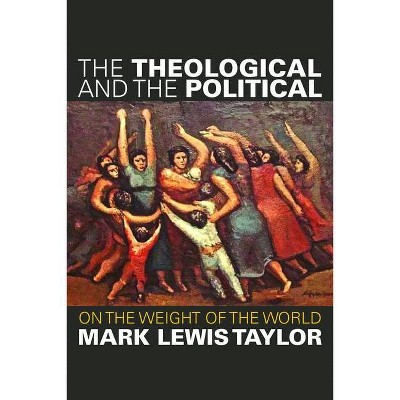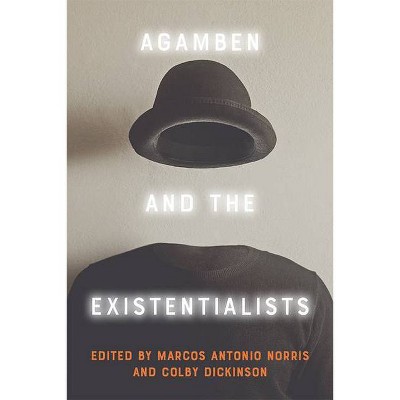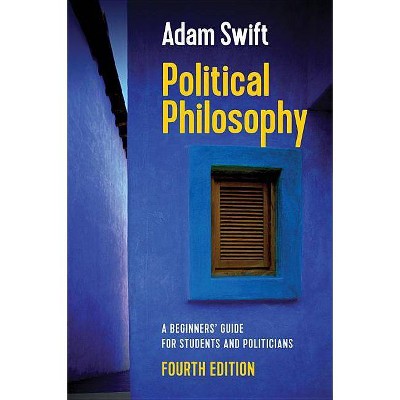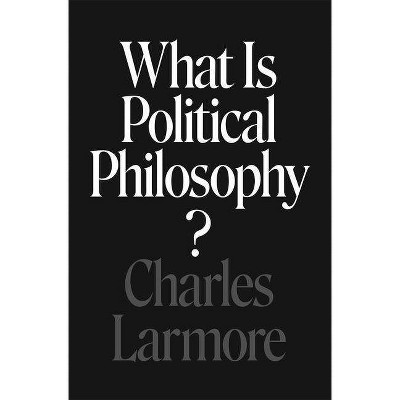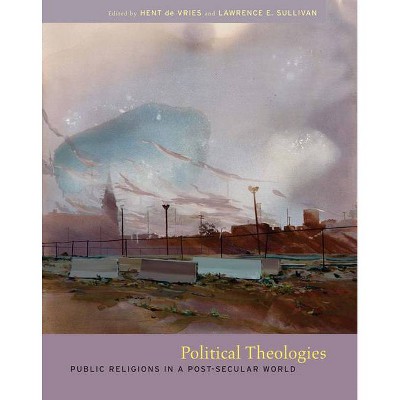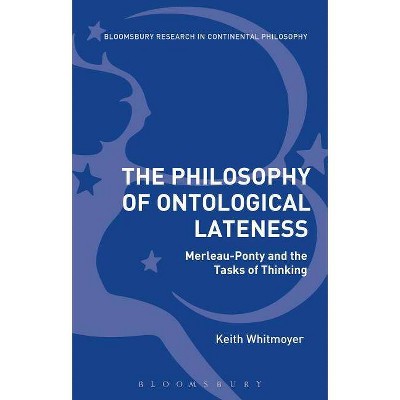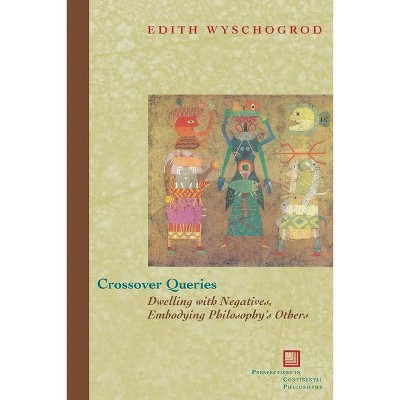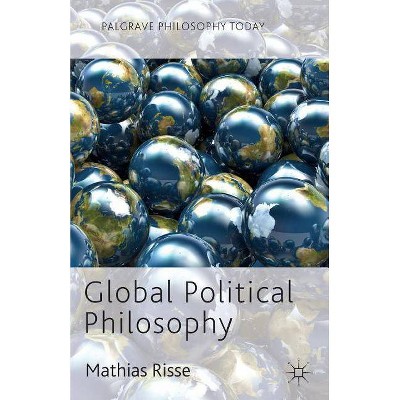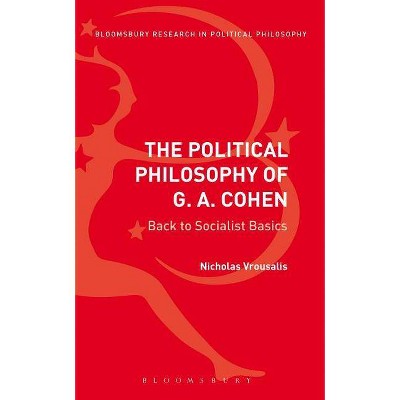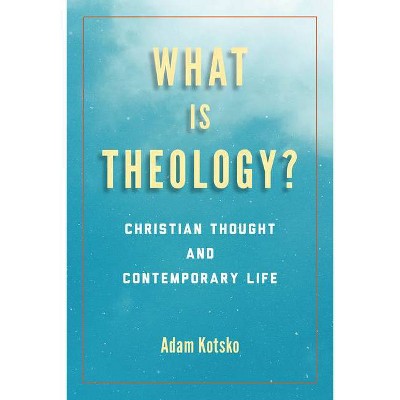Theological Poverty in Continental Philosophy - (Political Theologies) by Colby Dickinson (Hardcover)
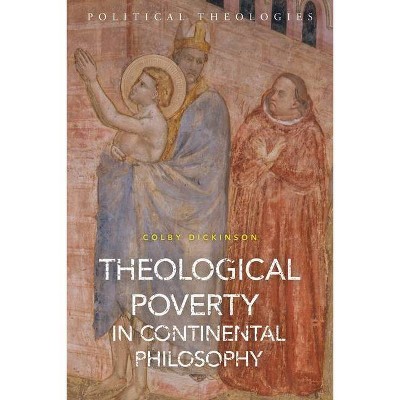
Similar Products
Products of same category from the store
AllProduct info
<p/><br></br><p><b> About the Book </b></p></br></br>"Colby Dickinson proposes a new political theology rooted in the intersections between continental philosophy, heterodox theology, and orthodox theology. Moving beyond the idea that there is an irresolvable tension at the heart of theological discourse, the conflict between the two poles of theology is made intelligible. Dickinson discusses the opposing poles simply as manifestations of reform and revolution, characteristics intrinsic to the nature of theological discourse itself. Outlining the illuminating space of theology, Theological Poverty in Continental Philosophy breaks new ground for critical theology and continental philosophy. Within the theology of poverty, the believer renounces the worldly for the divine. Through this focus on the poverty intrinsic to religious calling, the potential for cross-pollination between the theological and the secular is highlighted. Ultimately situating the virtue of theological poverty within a poststructuralist, postmodern world, Dickinson is not content to position Christian philosophy as the superior theological position, moving away from the absolute values of one tradition over another. This universalising of theological poverty through core and uniting concepts like grace, negation, violence and paradox reveal the theory's transmutable strength. By joining up critical theology and the philosophy of religion in this way, the book broadens the possibility of a critical dialogue both between and within disciplines"--<p/><br></br><p><b> Book Synopsis </b></p></br></br>Colby Dickinson proposes a new political theology rooted in the intersections between continental philosophy, heterodox theology, and orthodox theology. Moving beyond the idea that there is an irresolvable tension at the heart of theological discourse, the conflict between the two poles of theology is made intelligible. Dickinson discusses the opposing poles simply as manifestations of reform and revolution, characteristics intrinsic to the nature of theological discourse itself. Outlining the illuminating space of theology, <i>Theological Poverty in Continental Philosophy</i> breaks new ground for critical theology and continental philosophy.<br/><br/>Within the theology of poverty, the believer renounces the worldly for the divine. Through this focus on the poverty intrinsic to religious calling, the potential for cross-pollination between the theological and the secular is highlighted. Ultimately situating the virtue of theological poverty within a poststructuralist, postmodern world, Dickinson is not content to position Christian philosophy as the superior theological position, moving away from the absolute values of one tradition over another. <br/><br/>This universalising of theological poverty through core and uniting concepts like grace, negation, violence and paradox reveal the theory's transmutable strength. By joining up critical theology and the philosophy of religion in this way, the book broadens the possibility of a critical dialogue both between and within disciplines.<p/><br></br><p><b> Review Quotes </b></p></br></br><br>Colby Dickinson's newest monograph serves as an excellent guide to prophetic Continental voices, especially Adorno, Derrida and Caputo, in order to demonstrate that the poverty of theology is in reality its strength: humility, learning from the other, and "interruption" of interreligious dialogue can only enrich and enliven contemporary theology.<br/>Joseph Rivera, Associate Professor of Theology and Philosophy, Dublin City University, Ireland<br><br>Dickinson mobilizes his commanding grasp of contemporary philosophy to reconceptualize the task of theology for our secular world. Critical of its various entanglements with sovereignty, Dickinson argues that theology should understand itself as kenotically, in relation its own poverty. Rather than abandoning theological and ecclesial traditions, Dickinson's "poor" or minimal theology seeks to open and repurpose them for our globalized existence. His proposal is essential for theology and the future of Christianity itself.<br/>Hollis Phelps, Assistant Professor of Interdisciplinary Studies, Mercer University, USA<br><p/><br></br><p><b> About the Author </b></p></br></br><b>Colby Dickinson</b> is Associate Professor of Theology at Loyola University Chicago, USA. He is author of <i>Between the Canon and the Messiah (</i>Bloomsbury, 2014)<i> </i>and <i>Agamben and Theology</i> (Bloomsbury, 2011) and editor of <i>The Challenge of God</i> (Bloomsbury, 2020)
Price History
Price Archive shows prices from various stores, lets you see history and find the cheapest. There is no actual sale on the website. For all support, inquiry and suggestion messages communication@pricearchive.us
